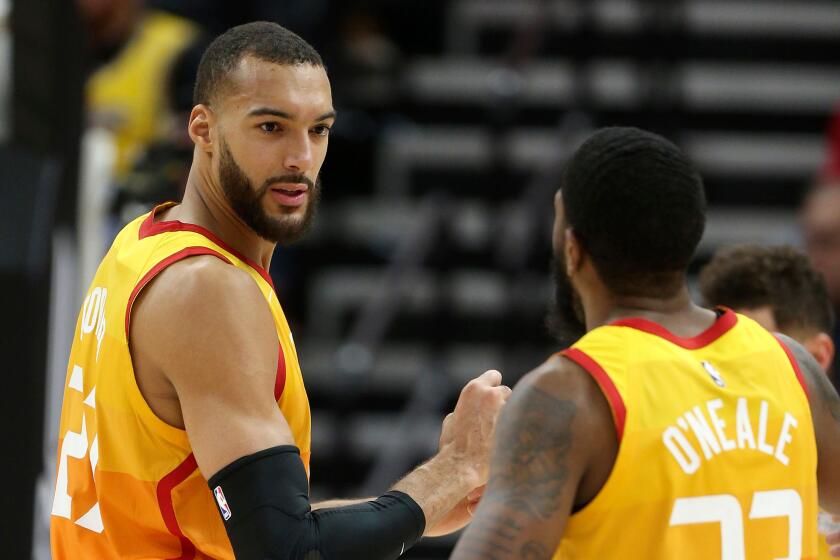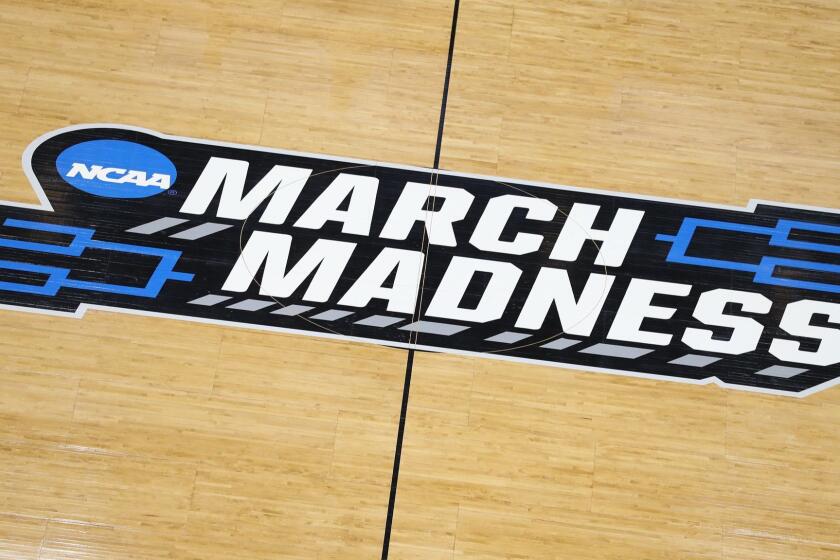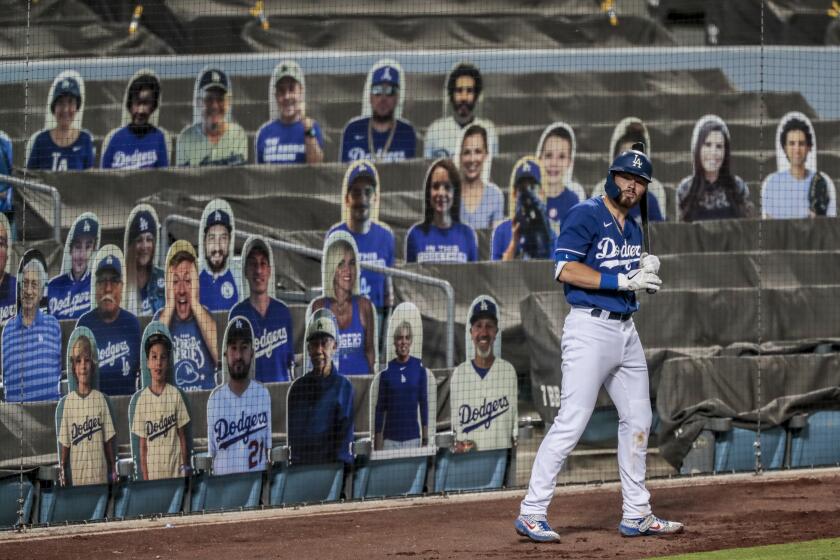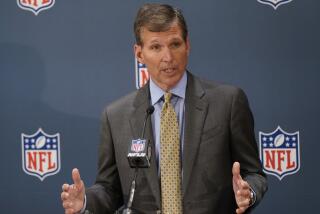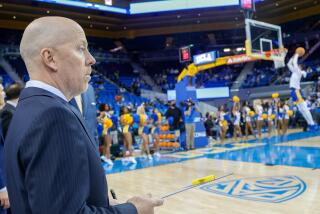Column: Sports world forced to go dark because of the coronavirus
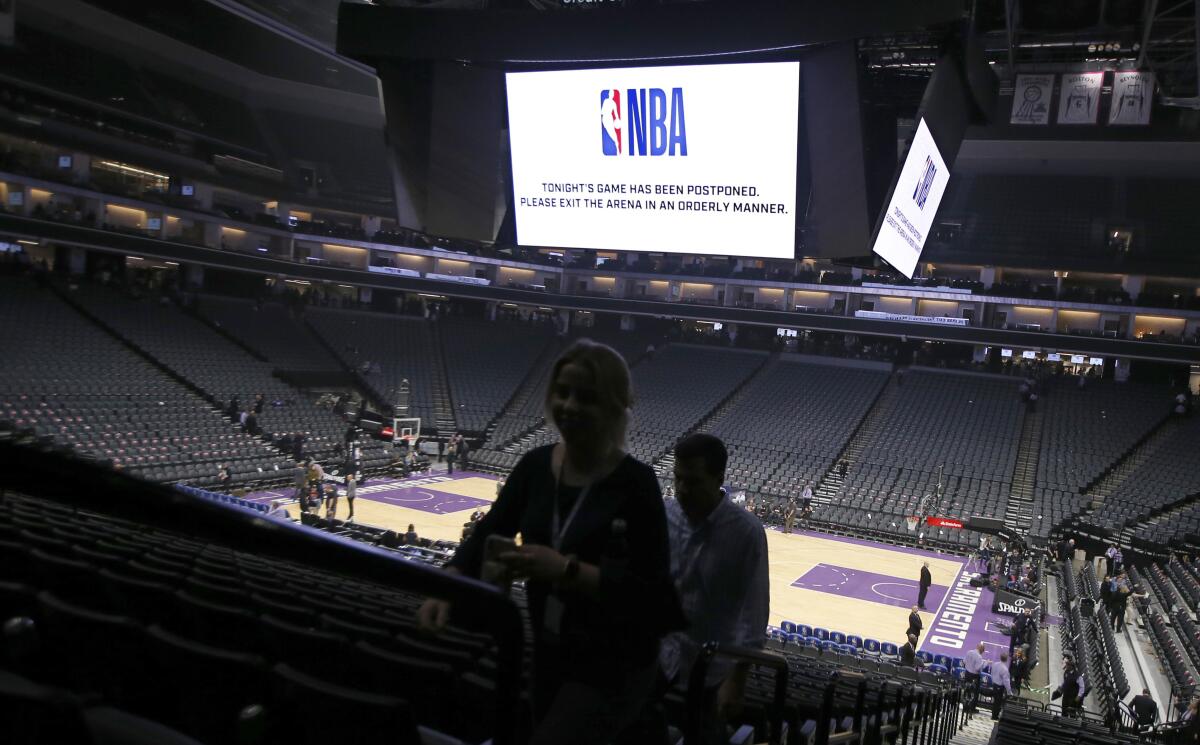
Three days ago, Rudy Gobert of the Utah Jazz playfully ended a news conference by touching every microphone in front of him, as if pretending to spread a fake coronavirus.
On Wednesday night, Gobert was diagnosed with the real coronavirus and the entire NBA was shut down until further notice.
Now it’s real. Now it’s scary.
Last weekend, USC’s Jonah Mathews hit a buzzer-beater to defeat UCLA, then, in a glorious scene, was hugged and grabbed and touched by about half of downtown Los Angeles.
Next week, if Mathews is fortunate enough to be the hero again in America’s great obsession known as the NCAA basketball tournament, his one shining moment will be dulled by playing in an empty gym … if the NCAA tournament is even held at all.
Now it’s infected our games. Now it’s hit home.
The NBA on Wednesday moved to suspend the season indefinitely amid the coronavirus pandemic, which included Utah’s Rudy Gobert contracting COVID-19.
Despite all the warnings and wailings about the COVID-19 virus over recent weeks, the sports world had always felt safe and strong, above infirmity, tougher than any damn flu, our steady beacon of hope in a national crisis. But on one of the most eerily dark days in this country’s sports history, as sudden as a deep cough and as quickly as a loud sneeze, everything changed.
Sports’ immune system has completely shut down. The virus has weaseled its way into our gyms and our fields. A distant distraction became a horror movie.
The NBA could be closed for business for a month. Rudy Gobert is its Patient Zero, and, goodness, if the disease can infect a strong athlete and bring down an entire league, it can go anywhere and can reach anybody.
March Madness has officially lost its madness and, whoa, if the virus can empty out 14 arenas across the country during arguably the most fan-fueled event on the sports calendar, what can’t it touch?
The Pac-12 tournament in Las Vegas, as well as all other Power 5 conference tournaments, will be played without fans. Major League Soccer games have been postponed. The Los Angeles Unified School District has closed all games to spectators.
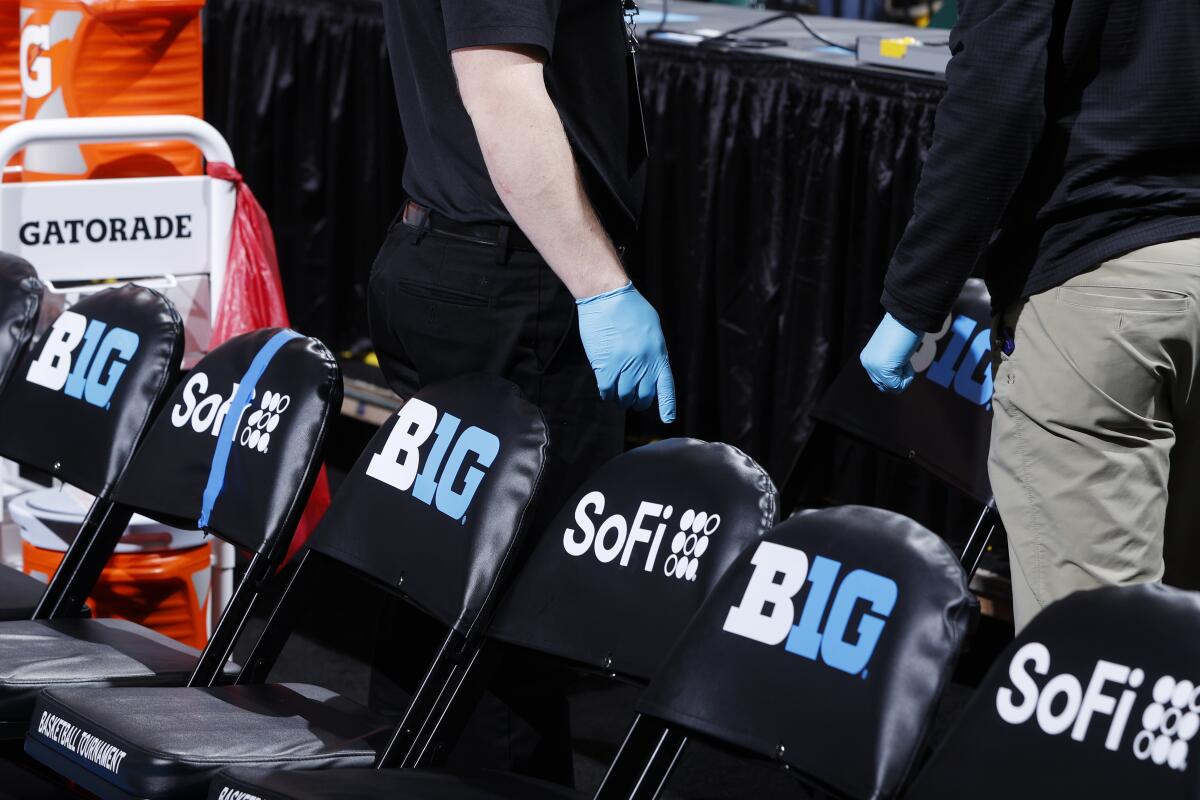
This was the day sports became quarantined, which is so backward and so wrong because isn’t sports what we watch when we’re quarantined? Sports aren’t supposed to get sick. Sports are supposed to comfort us when we’re sick.
Yet there they were, members of the Oklahoma Thunder and Utah Jazz walking off the court in Oklahoma City just before tip-off after a Jazz trainer ran out and frantically reported that Gobert had tested positive for coronavirus.
The fans were asked to leave the arena in an “orderly fashion,” as if something were on fire. Something was. Our naive belief that sports are impenetrable has been destroyed.
How many players had Gobert touched after he acquired the disease? How many teams have been directly or indirectly exposed to his virus? How can the league even think about playing for at least the next couple of weeks, maybe more?
The effects of this virus on the NBA’s machinations for the rest of the season are complicated and chilling. For owners who collect big bucks from game revenue, this is serious business. For many sports fans who have been foolishly avoiding thinking seriously about the coronavirus effects on their own lives, this was surely the news that shook them awake.
The minute I saw those players walk off the court, waving to the stunned crowd, I ran down to the corner grocery store to stock up on the panic menu of hand soaps and sanitary wipes. I was too late.
The NCAA has decided to hold the men’s and women’s basketball championships without fans because of concerns over the coronavirus.
By the time the NBA news hit, folks were already shaken by the announcement from NCAA President Mark Emmert that his organization’s marquee event will be played in seclusion.
“My decision is based on the current understanding of how COVID-19 is progressing in the United States,” he said.
Sounds like something right out of “Contagion,” no?
I wrote earlier this week that the NCAA needed to make this move, but I had no idea about the feelings of sadness and dread that would arise when it actually did.
Imagine the Big Dance with nobody dancing. No roaring crowd as a No. 14 seed surges to challenge a No. 3 seed. No rollicking pep band with faces painted and trombones swerving. The celebrated “One Shining Moment” video that is played at the end of every tournament is going to look a lot different. No shine, and no moment.
Emmert told the Associated Press that canceling the entire tournament had been considered. That’s still surely a possibility, maybe a strong one, maybe an inevitable one.
Stories examining the impact the spread of the coronavirus has had on the NBA, NHL, MLB, the NCAA tournament and the rest of the sports world.
If one NBA player has already tested positive, how many of the hundreds of college players are walking around with the virus right now? And seriously, if the NCAA is trying to protect the safety of the student-athletes, why are they letting them fly commercial airlines across the country and congregate in sometimes crowded public spaces like hotels?
Emptying the seats was a good idea on Wednesday, but it probably won’t be enough next week if the disease has advanced like experts predict. The NCAA tournament could easily disappear, and at this point, would you really be surprised?
And what about the rest of the upcoming sports calendar? Do the Dodgers open their season March 26 against the San Francisco Giants in an empty Dodger Stadium? Is the Masters golf tournament, in a tradition truly unlike any other, held on an empty course? It is held at all?
So many questions, so many unknowns, so much fear on a day a perfectly healthy sports world became very, very sick.
More to Read
Go beyond the scoreboard
Get the latest on L.A.'s teams in the daily Sports Report newsletter.
You may occasionally receive promotional content from the Los Angeles Times.

